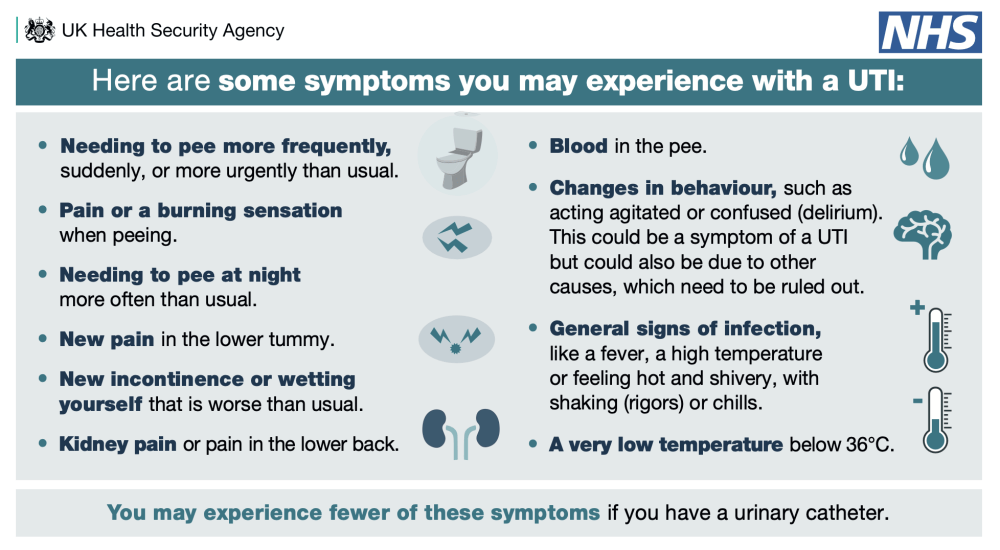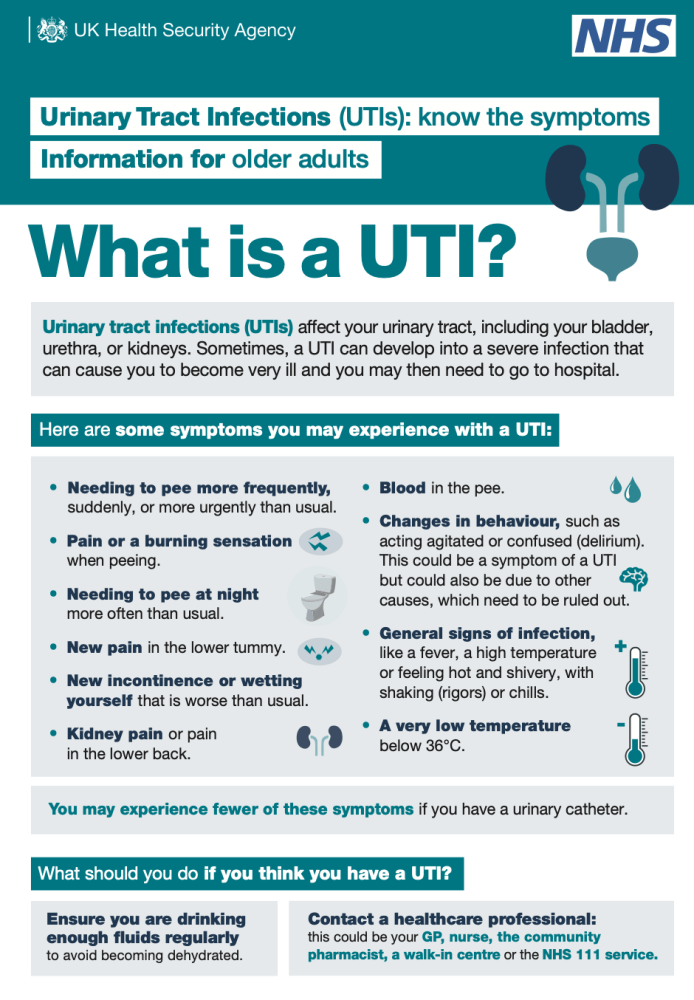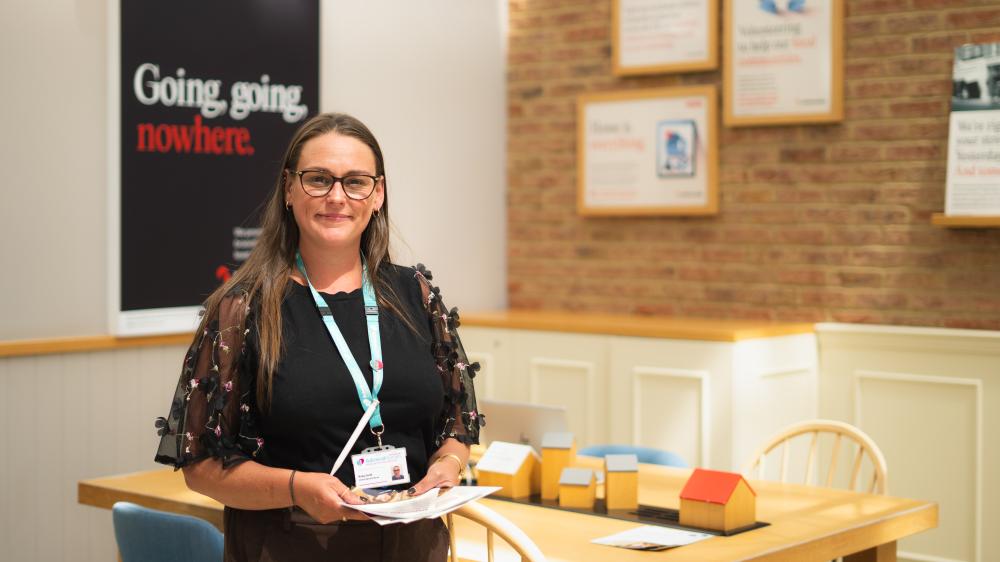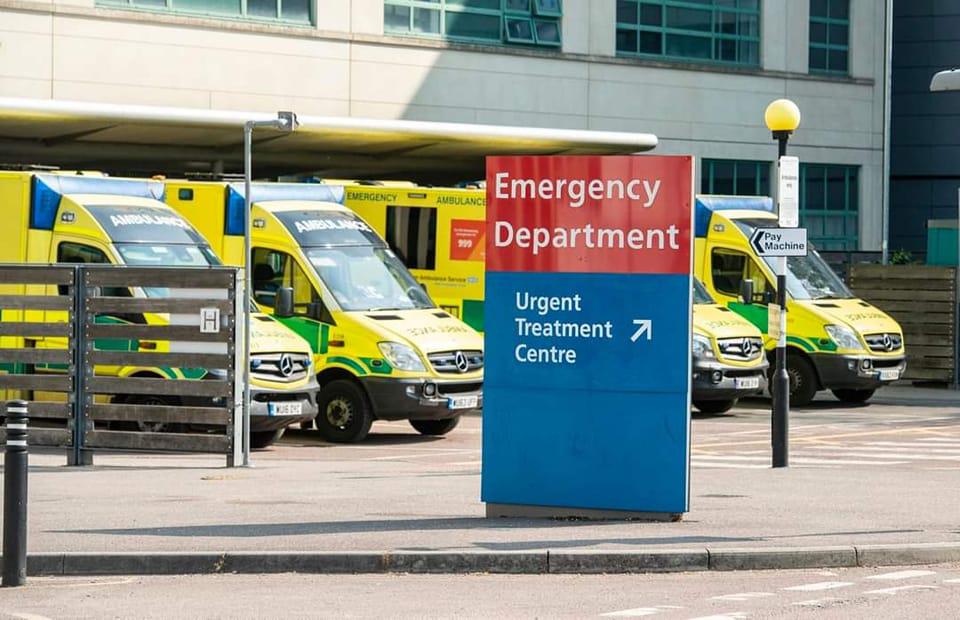The NHS and UK Health Security Agency are joining forces to help reduce the toll from urinary-tract infections (UTIs).
The health bodies, which cover Swindon, say UTIs led to more than 21,000 urgent hospital admissions across the region last year.
UTIs can be particularly serious in older people, with the over-70s accounting for 70 percent of admissions. While the overall UTI death rate in hospital is around four in a hundred, this rises to nearly one in 10 for people aged 95-plus.
However, simple steps, such as good hygiene and drinking plenty of fluid, can help people reduce the risk of infection and hospitalisation.
While UTIs are a year-round concern, NHS England and UKHSA hope greater awareness will help keep people well as the NHS approaches what is likely to be another busy winter.
Elizabeth Beech, NHS England’s South West Antimicrobial Resistance and UTI lead, said: "UTI is very common, and early treatment with the correct antibiotic can reduce the risk of a serious infection that can result in a hospital admission, particularly for older people.
“That’s why we are encouraging older people and their carers to take simple measures to reduce the risk of infection as well as to recognise the signs of a possible infection and seek NHS help.
"Both of these can help people stay safe at home this winter."
Sometimes UTI can be hard to treat due to antibiotic-resistant infection, especially in older people. Recognising the symptoms and consulting the NHS early may make the UTI easier to treat.
Some of the symptoms of UTI include needing to urinate more frequently or urgently than usual, pain or a burning sensation when urinating, new pain in the lower stomach area, kidney pain or pain in the lower back, blood in the urine, and for older people can include changes in behaviour such agitation or confusion.
A range of resources, including posters, have been developed for the local NHS, including GP practices. They will also be shared with charities, royal colleges, care homes, and other relevant groups in the health and care sector to ensure as many older people and their carers have access to the information as possible.
The materials highlight the importance of keeping hydrated by regularly drinking enough fluids, going to the toilet as soon as possible when in need, and washing or showering regularly to make sure the genital area is kept clean and dry.
If left unmanaged UTIs can lead to severe infection, sepsis, and in the most serious cases death.
Dr Derren Ready, Consultant in Public Health Infections South West at UKHSA, said: “Urinary-tract infections are incredibly common and while most people can manage their infection at home with painkillers and plenty of fluids, some people will develop more serious complications, such as kidney or bloodstream infections that need hospital treatment.
"These more serious consequences are more common in people over the age of 65 so we are reminding people over the age of 65 in particular to be aware of the ways they can help reduce their risk of getting poorly.
"Drinking enough fluids is so important, as well as avoiding holding onto pee. Regular washing and keeping dry can also help reduce the risk of infections.”
Professor Sir Stephen Powis, NHS national medical director, said: "If you or someone you care for has any symptoms like pain when peeing, a high temperature, lower tummy pain, or changes in behaviour, please seek advice as soon as possible from your GP, a walk-in centre, community pharmacist, or by calling NHS 111, as the quicker a UTI is detected, the faster and easier it is to treat."
To help prevent UTI, the NHS and UKHSA are reminding older adults to:
- Drink enough fluids regularly
- Avoid holding urine - instead, go to the toilet as soon as possible when you need to
- Wash, or shower daily where possible especially if you suffer from incontinence
- Keep the genital area clean and dry and check and change leakage of urine pads often
- Wash genitals before and after sex
Older adults, particularly people 65 years and older are more prone to UTIs, and while both sexes can get a UTI, UTIs are more common in women than men. Women have a shorter urethra than men and bacteria are therefore more likely to reach the bladder or kidneys and cause an infection.
Symptoms of UTIs can include:
- Pain or a burning sensation when urinating (dysuria)
- Needing to urinate more often than usual
- Needing to urinate more often than usual during the night (nocturia)
- Needing to urinate suddenly or more urgently than usual
- Urine that looks cloudy
- Blood in your urine
- Lower abdominal pain or pain in the back, just under the ribs
- A high temperature, or feeling hot and shivery
- A very low temperature below 36C
In older, frail people who have problems with memory, learning and concentration (such as dementia), and people with a urinary catheter, symptoms of a UTI may also include:
- Changes in behaviour, such as acting agitated or confused (delirium)
- Wetting themselves (incontinence) that is worse than usual
- New shivering or shaking (rigors)
People who think they might have a UTI are advised to ensure they are drinking enough fluids to avoid becoming dehydrated. They should take paracetamol up to four times a day to reduce any pain.
The NHS advises people to contact a healthcare professional if they think they might have a UTI - this could be a GP, a nurse, the community pharmacist, a walk-in centre or the NHS 111 service.
There are different treatment options to discuss. Antibiotics should only be taken if prescribed by a healthcare professional, and people should always ensure antibiotics are taken as directed on the medicine label.
More information can be found at www.nhs.uk/conditions/urinary-tract-infections-utis










Your Comments
Be the first to comment on this article
Login or Register to post a comment on this article